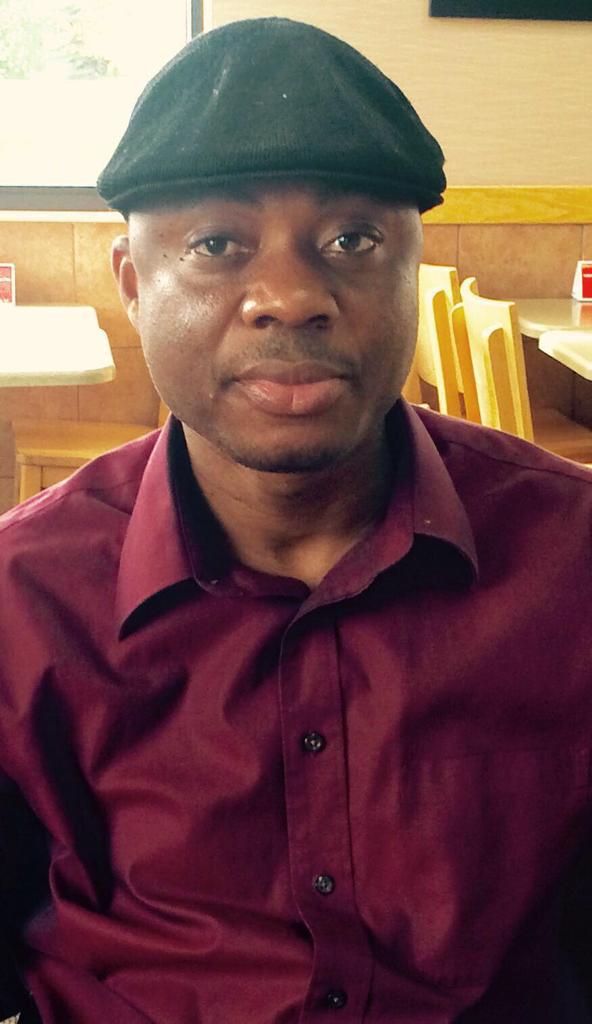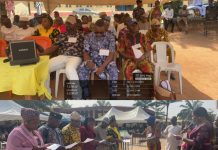
Some of us have been following the health policy of Akeredolu administration . And we are beginning to see a very coherent and workable health policy . This government is taking a step away from the conventional free loader health expenditure policy to an economically participatory version. The government of Rotimi Akeredolu in Ondo State is doing one more exciting stuff. And many of us are excited about it. And that is the Ondo State contributory health program. The bill for the program was passed by the house of assembly on 2nd February 2018 and received governor’s assent on 6th February 2018.
First , we need to answer the question : Is health wealth ? or is wealth health ?
Contributory healthcare scheme as the name implies is a system of pooling funds from participants with the aim of providing healthcare . It’s a mass healthcare economy strategy . As a collective approach to health spending, it’s expected to make healthcare more affordable , qualitative, accessible and equitable. It’s basically a health insurance scheme. National Health Insurance Scheme ( NHIS ) is the federal government of Nigeria’s variant of the scheme. NHIS has never been national in its coverage. This has necessitated states designing a scheme for their residents.
It’s based on the philosophy that we do not need to spend more but more efficiently to provide equitable, qualitative and affordable healthcare for residents. The economy of scale, central administration , and ability to prioritise and scale healthcare needs that a contributory nay cooperative health seeking and provision platform provides, afford a better optimisation of healthcare resources, their application and outcome.
And in 2019, with dwindling income in most jurisdictions, a well-managed and well administered contributory healthcare scheme is a smart technology we cannot go wrong on Health and the provision of healthcare , and the receiving of same is a many layered issue and endeavour . Therefore there has to be a shift in governmental thought process.
Related: Ondo Holds Health Investment Planning Summit, Targets N23.9bn For MSP
Rotimi Akeredolu has taken up the gauntlet of improving healthcare delivery for the citizens of Ondo State. Some of us love the courage for a policy change . It’s a lofty and laudable ideal . So we are very excited . Its more interesting this has happened as a consensus with the people at least via the house of assembly, because that is expected to better ensure the mutual commitment to make the scheme work best.
The Ondo State Contributory Health Commission ODSCHC ) is the body charged with the serious responsibility of managing the healthcare scheme. With the appointment of a general manager for the Ondo State Contributory Health Commission ( ODSCHC ) on 1st of June 2019, the program is set to take off.
The commission has the noble objective of making healthcare accessible, qualitative and equitable, and affordable to residents of Ondo state. This is akin to and if and well adapted may be better than what obtains in even advanced parts of the world.
But the objectives and goals are where the similarities with other examples around the world end. A casual look at the means and methodologies on ground to get us to that goal would reveal much is left to be desired.
We cannot afford a grotesque mis plan and consequent mis execution of this mass health policy. Some of us have our concerns. And that has to do with many areas of the scheme.
1.) Awareness:
Many, and I mean a huge proportion of residents are not aware. And those aware are unclear about so many aspects of the scheme. How are people expected to buy into a project they know little or nothing about ?
Let us for once assume all the other aspects of the program are okay. There are genuine concerns on the
2.) Operation Procedure and Presentation
3.) Accountability- Audit trail
4.) Performance measure and management
5.) Potability
6.) Reproducibility
The scheme consists of many components:
Let us look at pharmaceutical management as an example. Quality pharmacy service entails giving the right medication to the right patient, at the right cost, right direction of use, and the right cost. It also entails monitoring of side effects, achievement of the intended benefits etc.
To achieve the most basic aspects of this, there has to be the means of documentation of patient data , services provided, retrieval of information and data, audit trail of all these.
There has to be means of references to current drug information, preferably real time and
online.
There has to be means of communication from the pharmacists to the prescribers and the services have to be potable. That means there should be means communication and of of exchange of and data and information among pharmacies.
Without these, what we will be doing will be more of quackery. And the scheme would be amenable to consequential litigation.
Achieving good global best practices pharmacy practice we will all be proud of is not rocket science. There are affordable and efficient instrumentalities and methodologies that can handle all these.
Affordability
Publicly organised healthcare is based on the philosophy we should strive for adequate healthcare for all, or most people, and not perfect healthcare for a few or select few based on a discriminatory selection criteria which unless modified would be economics and ability to afford.
For a publicly organised healthcare to be equitable , the people in the society who cannot afford the premium should not be allowed to fall through the cracks. Or what is a publicly organised healthcare scheme if it’s discriminatory based on ability or inability to afford premium ? That would take us back to something similar to what we are avoiding.
Looking at the social determinants of health, most people with the highest burden of healthcare needs are the ones who are most likely unable to afford the premiums. And I am sure our governor would not want these folks fall through the cracks. A chain is only as strong as its weakest link. And that is the main philosophy behind a public health insurance scheme.
Also a lot of our disease burden are transmissible , therefore we should capture as many as possible residents for the herd effect of our healthcare intervention.
What would be the inclusive criteria and exclusive criteria for those with little means? How do we even determine those who fall in this category ? Where is our database ?
Are we going to be running a discriminatory health policy/ program like the NHIS ? Who picks up the slack for the uninsured, who cannot pay the premium or fall off after some time on the program ?
Accountability
Pharmaceutical Information Network is most desirable. Perhaps this might sound too idealistic. But at least there should be a means for audit trail of historical data and activities. My dear governor, do not go there until you put these things in place. If we really want to design a solution, we better design a durable and sustainable one. We need to take a long term view of issues. And the reason for this suggestion is obvious.
This would also put a lot of credibility on the program. And what would happen, donors and support organisations, local and international would find it easier to support the scheme.
And we are saying this with the understanding there has to be a starting point, where we do not expect perfection, but progress from there. But we also know that for the program to see the light of tomorrow, there are some irreducible minimum elements and criteria we need to have from get go.
There should be audit trail by default and design so no one can easily beat the system. Which real time and electronic memory based audit trail system have we put in place?
Sometimes, ahead of economics ,we have to put societal and human consideration in our policies.
Some healthcare and of course pharmaceutical needs would be episodic, some chronic and some progressive. We have to be able to handle them appropriately.
The Drug Formulary and distribution system that would be built will go a long way in mitigating the enduring and persistent chaos in drug distribution . Pricing too would be well managed to make private participation incentivised and worth it . Private sector participation is the key to the success of the program
Health seeking and Health consuming behaviour
Ultimately , individuals should be in full control of their health. And how to take care of it. And they should understand the economics of the program so they can make utmost judicious and optimal use of healthcare resources
Program is Contributory and should be participatory.
One major plank of anything contributory nay cooperative is optimal aggregate individual participation . The commitment and participation of majority of individuals in the target group should be secured. The target group here being the residents of Ondo State.
Therefore the low economic status of most residents is a huge part of the story. And it makes some of us wonder if wealth is health as much as health is wealth. As we have seen in many occasion , relative wealth is health.
How then do we improve the economic profile of individuals residents of our state? So that improving their health will be less tasking ? That is a huge part pf the equation. For it happens that for the downstream sector of our health care system to be healthy, the pockets of individual residents should be somewhat healthy.
We recognise that public health policy is an economic health policy since a more healthy citizen is more likely a more economically productive one.
The point I am making is we cannot silo health issues. Its contiguous on the economic viability of individuals. As we have seen, its only relatively economically viable individuals that can afford premiums and the more residents that can afford the premium, the more viable and sustainable the health program. For now, too many people , and I mean too many find it difficult to find a place to fit in economically . And finding a suitable fit for them may well be our most important responsibility.
The discretionary income of many residents so minimal . A lot of people want to eat . And the place of paying health premium in their food chain or scale of preference is low . And unless we are embarking on a largely social welfare healthcare system, we should be focused on the individual and not the government giving a much higher percentage of contribution.
Marketing of program , Individual Economy and Appreciation.
Many of our people are poor or at least feel they are poor. They are at the stage of taking care of immediate needs . Insurance which is futuristic to such people is not high on their priority list. Therefore, a great deal of enlightenment and education and more importantly improvement in economics situation or perception of same is highly required to mobilise enough adopters to sustain a program that would meet the objective of equitable healthcare provision.
As per WHO , “ health is a state of complete physical, mental and social well-being and not the merely the absence of disease or infirmity”
And as primordial as we might think healthcare is, it is difficult to build it on the twin evil of insecurity and palpable unemployment and /or underemployment
Potability
Spatial distribution of healthcare facility is fair in Ondo State, but that of functional facilities is not. We therefore need to ensure adequate functionality of each of our facilities to be able to provide the expected care.
Corruption and Contributory Healthcare Program
At a time when many states make deductions for contributory pension scheme but refuse to remit same to retirement accounts, it becomes a harder task to make a people trust a contributory health scheme. But it can be done. However that reinforces the need for inbuilt accountability system and audit trail capabilities .
In a country where Aso Rock clinic was reported not to have examination gloves and syringes and needle, and where corruption is largely untamed, and rule of law unruly , any structure built of a template lacking continually updated data amenable to audit trail is at great risk of sabotage. In situation like this social welfare spending should be minimised, and the management of a common pool of fund from the public must be seriously guarded.
Performance Analysis, Evaluation And Improvement
The current plan whereby providers would supply data and get paid does not lend itself electronic historical , periodic and sporadic audit trail is full of holes and cannot withstand integrity test. And we cannot build a system that would depend on the morality of the providers.
Performance analysis needs to be all stakeholders analysis. Consumers critiques data and analysis for quality improvement must be a big part of the program.
Way Forward: Investment in Providers Facilities and Training
The State government, through the contributory health Scheme need to invest in those infrastructures and training that would foster accountability, quality, potability, efficiency and ultimate sustainability of the programme. And this includes investing in both the private and public facilities . The initial investment would be worth it. This would make Ondo State a shining example in the country and even in regional west Africa.
For example , for the pharmacy sector, there should be investment in pharmacy software inventory management, point of sale, dispensing, documentation , pharmaceutical care plan , proper labelling, etc. for a good pharmacy practice. Ditto for other aspects of the program: Medical consult and care plan , medical records, laboratory data, dental, nursing care etc.
But then, this means each facility should have uninterrupted power supply. How do we do this when so many local government in Ondo state have not had electricity for so many years ? So you see we cannot really isolate the healthcare industry for purification. Health is contiguous on so many other aspects of our lives. And medical care is not synonymous with healthcare . We cannot compartmentalise or put healthcare in a silo for improvement. Investment in many other areas would be required for us to achieve our healthcare goals.
Long live Ondo State.















